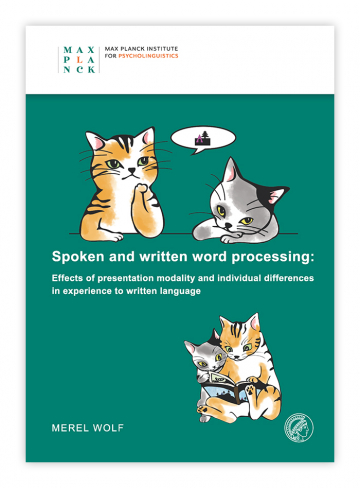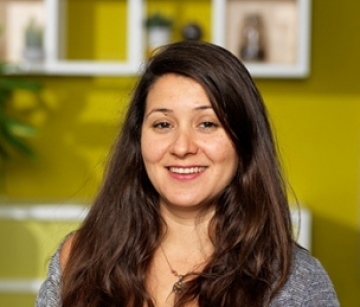-
 15 July 2022
15 July 2022Sentences have their own timing in the brain
Our brain links incoming speech sounds to knowledge of grammar, which is abstract in nature. But how does the brain encode abstract sentence structure? In a neuroimaging study published in PLOS...
-
 24 January 2022
24 January 2022Merel Wolf will defend her thesis on Monday 14th of February 2021
On Monday 14 February 2022, at 10.30, Merel Wolf will defend her thesis entitled 'Spoken and written word processing: Effects of presentation modality and individual differences in experience to...
-
 10 January 2022
10 January 2022Hans Rutger Bosker receives ERC grant to study audiovisual communication
A European Research Council (ERC) Starting Grant has been awarded to Hans Rutger Bosker, senior investigator at the Psychology of Language Department at the Max Planck Institute for Psycholinguistics...
-
 26 April 2021
26 April 2021Otto Hahn Medal awarded to Limor Raviv
Each year, the Max Planck Society awards up to 30 young scientists and researchers for outstanding scientific achievements with the Otto Hahn Medal. Limor Raviv of the MPI for Psycholinguistics will...
-
 11 March 2021
11 March 2021New tool automatically checks accuracy of speech transcriptions
Speech researchers are often interested in intelligibility. This is typically measured by playing utterances to volunteers and asking them to type out what they hear. However, manually scoring those...
-
 27 January 2021
27 January 2021What we see shapes what we hear
People often move their hands up and down to ‘highlight’ what they are saying. Are such ‘beat gestures’ important for communication? Hans Rutger Bosker from the Max Planck Institute for...
-
 01 October 2020
01 October 2020Rubicon grant for Joe Rodd
Joe Rodd has been awarded an NWO Rubicon grant to spend two years at the Institut für Linguistik - Phonetik of the University of Cologne conducting his research project ‘ Iterated intonation: speakers...
-
 06 January 2020
06 January 2020How speaking fast is like running
People can speed up or slow down their speech, which is essential for successful communication. To investigate how people control their speech rate, researchers from the Max Planck Institute for...
-
 06 January 2020
06 January 2020APS Rising Star designation for Hans Rutger Bosker
The MPI is proud and happy to announce that Hans Rutger Bosker has been honoured as APS Rising Star by the Association for Psychological Science in Washington DC. The Rising Star designation...
-
 17 July 2019
17 July 2019Community size matters when people create a new language
Why do some languages have simpler grammars than others? Researchers from the Netherlands and the UK propose that the size of the community influences the complexity of the language that evolves in it...
Share this page